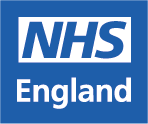Variation in community AHP autism services
Overview
As part of an NHS England, Getting it Right First Time (GIRFT) fellowship, I am exploring therapy provision, in the community, for children and young people with autism. I am exploring what ‘good’ looks like and which elements contribute to a successful outcome for the children and young people.
The questionnaire has been compiled around several key themes which include, workforce, models of delivery, resources, and partnerships.
Your contribution will support the development of case studies and guidelines for Allied Health Professionals, to provide effective therapy services for children and young people with autism. The findings from this survey will be shared with respondents.
The questionnaire should be completed by whoever is responsible for/involved in delivering NHS therapy services for children and young people with autism in your service. It should take approximately 20 minutes to complete.
Thank you in advance for supporting this work.
Why your views matter
The results from the questionnaire will be used to support NHS England’s GIRFT programme in its duty under the Health and Social Care Act 2022, to protect and promote the interests of people who use health care services by promoting provision of health and care services which are, among other things, economic, efficient and effective.
GIRFT is a national programme overseen by NHS England that aims to deliver quality improvement in patient outcomes through peer-to-peer discussion with clinicians and managers in NHS Trust’s and wider local partners. It combines wide-ranging data analysis with the input and professional knowledge of clinicians to examine how things are currently being done and how they could be improved.
Results from the questionnaire will be used for only two purposes (1) to support NHSE GIRFT deep dive or NHSE GIRFT implementation meetings in NHS services and networks; (2) to support recommendations in the NHSE GIRFT national speciality report.
Give us your views
Audiences
- Anyone from any background
Interests
- Learning disability and autism
- Children and Young People

Share
Share on Twitter Share on Facebook